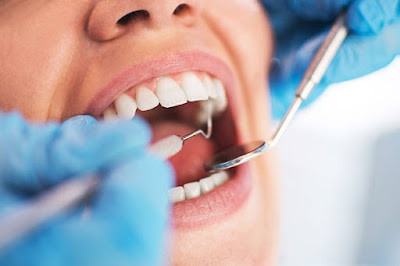Introduction
Oral health is a complex issue influenced by various factors, including diet, lifestyle, and genetics. While we have control over our diet and lifestyle, genetic factors are beyond our control. However, understanding the role of genetics in oral health can help individuals take steps to mitigate the impact of genetic factors.
The Genetics of Oral Health
Our genes play a significant role in determining the structure and function of our teeth and gums. Genetic variations can impact various aspects of oral health, including the formation of teeth and gums, susceptibility to dental caries, and the risk of periodontal disease.
Formation of Teeth and Gums
The development of teeth and gums is a complex process that is regulated by various genes. Genetic variations can lead to abnormalities in tooth and gum development, which can result in a range of oral health issues, including malocclusion (misaligned teeth), enamel defects, and gum disease.
Susceptibility to Dental Caries
Dental caries, commonly known as cavities, are a common oral health issue caused by the demineralization of tooth enamel by acids produced by bacteria in the mouth. Genetic factors do affect your oral health. For example, variations in the gene that regulates the production of saliva can impact the pH levels in the mouth, making it more acidic and increasing the risk of dental caries.
Risk of Periodontal Disease
Periodontal disease is a severe gum infection that can lead to tooth loss and other complications. Genetic factors can impact an individual's risk of developing periodontal disease. For example, variations in the gene that regulates the immune response can impact the body's ability to fight off the bacteria that cause gum disease.
How Genetics and Lifestyle Interact
While genetics play a significant role in oral health outcomes, lifestyle factors also play a crucial role. For example, a diet high in sugar and starch can increase the risk of dental caries, regardless of genetic factors. Similarly, poor oral hygiene practices can increase the risk of periodontal disease, regardless of genetic factors.
Conclusion
In conclusion, genetics can impact various aspects of oral health, including the formation of teeth and gums, susceptibility to dental caries, and the risk of periodontal disease. While we cannot change our genetic makeup, understanding the role of genetics in oral health can help individuals take steps to mitigate the impact of genetic factors. Maintaining good oral hygiene practices, eating a healthy diet, and regular visits to the dentist can help promote good oral health outcomes.
Read More: How Genetics Affect Your Oral Health

Comments
Post a Comment